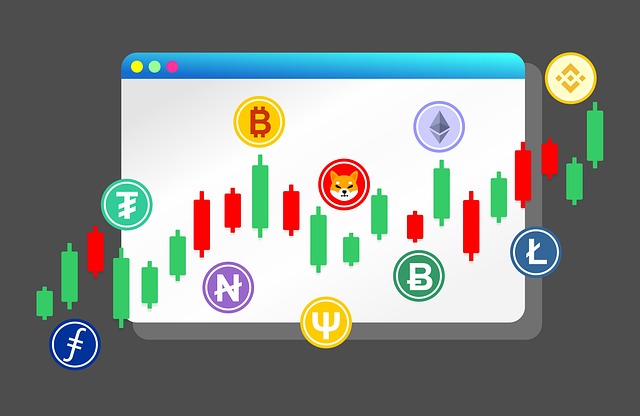In today’s digital age, cryptocurrencies have become a pivotal component of financial conversations worldwide. With the rapid rise in the number of crypto assets available, the term “crypto wallet” has emerged as one of the most searched keywords in the realm of digital currencies. Understanding crypto wallets, their types, and how they work is crucial for anyone looking to dive into the world of digital currencies. This article aims to provide comprehensive insights into crypto wallets, their significance, and the evolving landscape of digital finance.
What is a Crypto Wallet?
A crypto wallet can be defined as a digital tool that allows users to store, send, and receive cryptocurrencies. Unlike traditional wallets that hold physical cash and cards, crypto wallets do not store the currency itself. Instead, they hold the private keys needed to access your cryptocurrency on the blockchain. The use of these keys is fundamental since they enable users to prove ownership of their digital assets.
There are several types of crypto wallets, each with its unique features and security measures. Understanding the pros and cons of each can help you choose the best solution for your digital assets.

Types of Crypto Wallets
1. Hot Wallets
Hot wallets are connected to the internet and are convenient for quick transactions. They’re ideal for those who trade frequently or need access to their funds at a moment's notice. Here are some popular hot wallet options:
- Online Wallets: Accessible through web browsers, these wallets are easy to set up and use. However, they are vulnerable to hacking.
- Mobile Wallets: Designed for smartphones, these wallets are user-friendly and perfect for on-the-go transactions. Examples include Trust Wallet and Coinbase Wallet.
- Desktop Wallets: These applications are installed on your computer and grant you control over your private keys. Electrum and Exodus are leading examples.
2. Cold Wallets
Cold wallets are offline storage solutions that provide heightened security. They’re recommended for long-term investors who do not need immediate access to their cryptocurrency. When using cold wallets, consider the following:
- Hardware Wallets: These are physical devices that securely store your keys offline. Popular choices include Trezor and Ledger.
- Paper Wallets: This involves printing your private and public keys on paper. Although it protects against online theft, physical damage can affect access.
Choosing the Right Wallet for You
When selecting a crypto wallet, consider factors like security, usability, and the types of cryptocurrencies you plan to hold. It's essential to find a balance between convenience and security depending on your trading habits. For those who trade often, a hot wallet may be more suitable. Conversely, serious investors might opt for a cold wallet for enhanced security.
Safety Measures for Crypto Wallets
Regardless of the type of wallet you choose, employing safety measures is vital to protect your assets. Here are some key practices:
- Enable Two-Factor Authentication (2FA): This adds an additional layer of security by requiring a second form of identification.
- Use Strong Passwords: Create complex passwords and change them regularly.
- Backup Your Wallet: Regular backups can ensure that you don’t lose access to your assets in case of device failure.
- Keep Software Updated: Regular updates protect your wallet from vulnerabilities and security breaches.

Popular Crypto Wallets
Several wallets have gained popularity due to their user-friendly interfaces and robust security features. Here are some recommended options:
1. Binance Wallet
Binance is one of the largest cryptocurrency exchanges globally, providing its users with an integrated wallet. It supports a wide variety of cryptocurrencies and offers features like trading directly from your wallet, making it a convenient option for traders. If you want to explore what Binance has to offer, you can sign up here.
2. MEXC Wallet
The MEXC exchange also offers a secure wallet for storing and trading various cryptocurrencies. With an intuitive design and multiple trading options, MEXC is an excellent choice for both novice and experienced traders. You can create your account here.
3. Trust Wallet
Trust Wallet is a mobile wallet owned by Binance, known for its ease of use and support for a vast number of tokens. It provides users with complete control over their private keys, enhancing security.
4. Ledger Nano X
For those prioritizing security, the Ledger Nano X is a highly regarded hardware wallet. It supports multiple cryptocurrencies and offers Bluetooth functionality for mobile use.
Future Trends in Crypto Wallets
The world of crypto wallets is evolving rapidly, catering to a growing number of users worldwide. Several trends are emerging in this space:
1. Increased Security Features
As cybersecurity threats continue to rise, wallet developers are investing in advanced security features, such as biometric authentication and multi-signature support.
2. User Experience Improvements
Wallet interfaces are becoming increasingly intuitive, catering to a broader audience. The focus is shifting towards making wallets more user-friendly, especially for newcomers to the crypto space.
3. Integration with DeFi and NFTs
With the rise of decentralized finance (DeFi) and non-fungible tokens (NFTs), wallets are expected to integrate functionalities that allow users to manage these assets seamlessly. This will enable users to conduct a broader range of transactions within one interface.
Conclusion
The rise of crypto wallets is a testament to the growing acceptance and adoption of cryptocurrencies in our everyday lives. Whether you are a seasoned trader or a new entrant, understanding the types of wallets available and their security implications is crucial. The future of crypto wallets looks promising, with advancements in technology enhancing security, user experience, and functionality.
As you navigate this complex landscape, make informed decisions about which wallet aligns with your needs. Explore reputable wallets like Binance and MEXC to securely manage your digital assets in this exciting new era of finance.